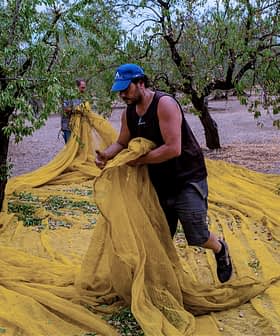Olive oil producers in Caserta, a province in the Campania region of southern Italy, have joined forces in the creation of a consortium to promote the Terre Aurunche PDO, one of the country’s most distinguished geographical indications.
“In one of the most difficult times for the extra virgin olive oil market, with a difficult season ahead, we felt the need as entrepreneurs to unite and better protect and enhance our olive oil,” said Margherita Ceparano, the newly-nominated president of the Consorzio di Tutela Terra Aurunche PDO.
See Also:European Geographical Indicators Valued at More Than $80 BillionThe Protected Designation of Origin certification was awarded by the European Union to the locally-produced extra virgin olive oil back in 2011, with the first certified harvest in 2014.
According to Ceparano, the consortium is needed to standardize the production of Terre Aurunche PDO olive oil and help local producers focus on quality, while more strongly linking the product with the region.
The consortium will include 6,000 hectares (more than 14,800 acres) of olive groves in the province. According to the estimates of the Campania regional authorities, the 15 main farmers of the Terre Aurunche PDO produce a little bit more than 18,000 quintals (almost 2,000 tons) of the oil each year.
In order to be labeled Terre Aurunche PDO, the extra virgin olive oil must be produced with at least 70 percent of olives from the Sessana cultivar. The cultivar name is derived from the town of Sessa Aurunca, the largest municipality in the area.
The remaining olive oil must come from the Corniola, Itrana and Tonacella cultivars, which are all ancient olive varieties of the region.
See Also:The World’s Best Olive OilsAs a result of the mild climate, volcanic soil and the specific characteristics of the Sessana cultivar, the free acidity of the extra virgin olive oil is less than 0.6 percent and it is renowned for its polyphenol content and its bitter and piquant taste.
The Terre Aurunche PDO producing area spreads in the vicinity of the extinct volcano Roccamonfina, among the municipalities of Caianello, Carinola, Cellole, Conca della Campania, Falciano del Massico, Francolise, Galluccio, Marzano Appio, Mignano Monte Lungo, Mondragone, Rocca D’Evandro, Roccamonfina, San Pietro, Sessa Aurunca, Sparanise, Teano and Tora e Piccilli.









